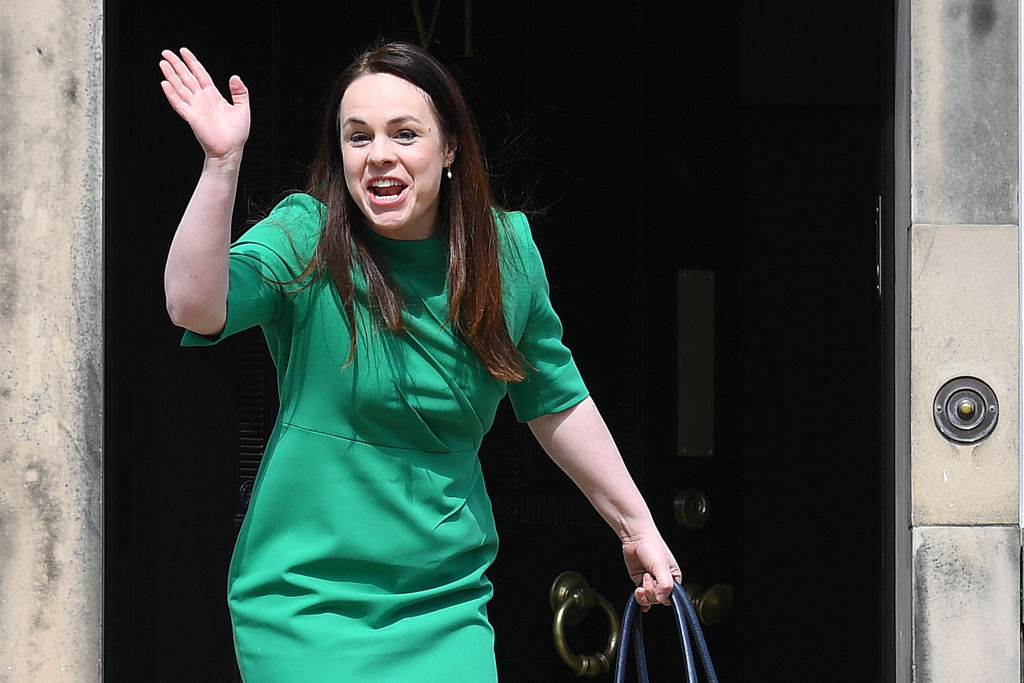Patronage is a double-edged sword for any leader. Doling out jobs can help keep mutinous colleagues onside — but at the risk of creating problems down the road if they choose to resign.
Rishi Sunak learned that lesson the hard way. Appointing Lee Anderson as deputy chairman of the Tory Party was seen as a way of hugging him close. But in the end, all it did was draw more attention to his rebellion over the Rwanda Bill — and his eventual defection to Reform UK.
John Swinney, the new First Minister of Scotland and returning leader of the SNP, is now making the same gamble. Kate Forbes, the former finance minister who ran Humza Yousaf extremely close in last year’s leadership contest, has today been appointed Deputy First Minister.
The case for it is clear enough. Forbes and her allies were already organising on the backbenches, and reportedly preparing to draw up an alternative policy prospectus to Yousaf’s. That’s a dangerous force for any leader to try and ignore.
What’s more, out of office Forbes would have had a free hand to criticise the Scottish Government on its many policy failures, and would not have had to take any ownership of those herself. As a minister, collective responsibility will apply.
Finally, while it looks as though Swinney has struck a deal with Forbes on policy — particularly on the Net Zero commitments made to the Greens — she may well be less provocative in the DFM role than in a policy-focused portfolio such as the finance brief.
Indeed, she may come to regret taking the position for just that reason; many Liberal Democrats certainly think Nick Clegg erred by accepting the role of deputy prime minister rather than a proper department during the Coalition years.
But just as Sunak did with Anderson, Swinney is taking a risk. A much bigger risk at that: polling suggests that while he is more popular with SNP voters, the Scottish public rates Forbes more highly as a potential first minister. As such, there is now a potential landmine in the path of the Scottish Government were she to walk out.
Swinney thus faces a difficult balancing act. He leads a divided party, the Sturgeonite wing of which is scarcely any keener on Forbes and her Tartan Tory style of nationalism than were the Greens. His whole job, as the unity candidate, is to try and keep a lid on those divisions until the next Holyrood elections, due to take place by May 2026.
That limits the First Minister’s room to make concessions to his new deputy on her policy programme. But he needs to make enough concessions that Forbes considers it worth her while sticking by the Scottish Government, even as the normal run of flops and scandals continues.
Unlike Anderson, Forbes seems unlikely to ever defect to another party. The only alternative on the pro-independence side would be Alex Salmond’s tiny Alba, and she’s too big a beast for that pen.
More plausible, if the SNP’s polling doesn’t improve in the next year or so, is that she decides to return to the backbenches ahead of the Holyrood vote, leaving the party hierarchy to carry the can for a bad result. Then, she will be able to present herself as a clean pair of hands in any subsequent leadership contest.
Swinney’s first stint as Nationalist leader, from 2000 to 2004, was not a happy one. But while the man himself has come on in the intervening quarter century, the broader situation has developed, to paraphrase Hirohito, not necessarily to the SNP’s advantage. His second run may well end up being no happier than the first.











Join the discussion
Join like minded readers that support our journalism by becoming a paid subscriber
To join the discussion in the comments, become a paid subscriber.
Join like minded readers that support our journalism, read unlimited articles and enjoy other subscriber-only benefits.
Subscribe